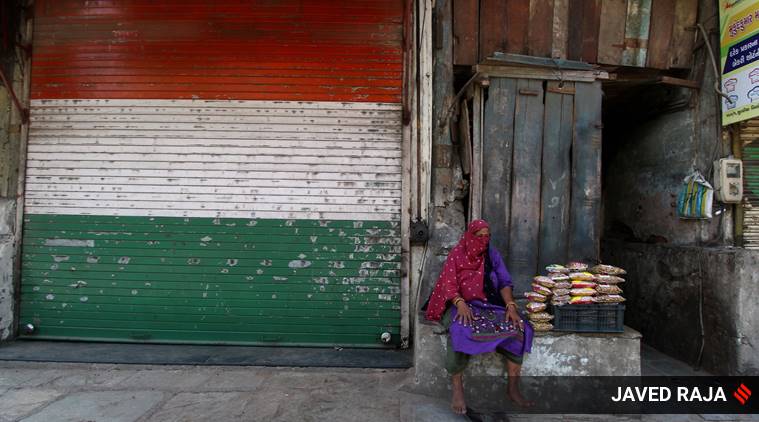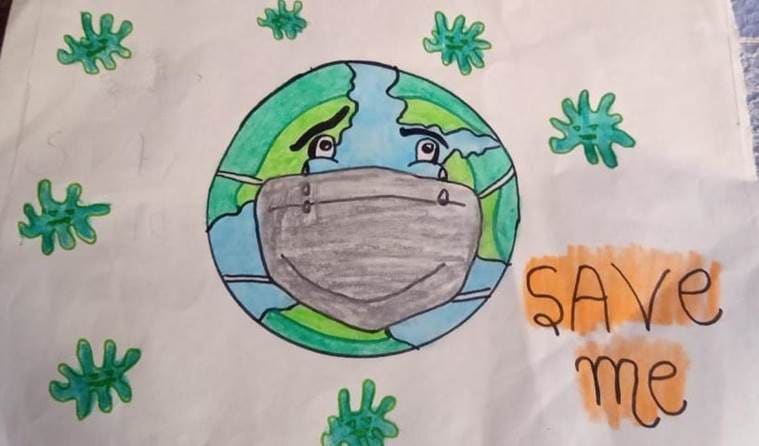 According to the findings: Some children from the villages say they are enjoying the lockdown because they do not have go to school. (Representational)
According to the findings: Some children from the villages say they are enjoying the lockdown because they do not have go to school. (Representational)
Unlike children from urban areas, they don’t have access to Wifi, video games or hi-tech gadgets. Even if their parents do have a smart phone, they cannot be on WhatsApp or Facebook 24×7 because they have to help out their families in the ongoing wheat harvesting season.
So what exactly are children in rural Punjab doing during this lockdown? What do they have to say about how the coronavirus has changed their lives?
As the world battles a pandemic — Heart Circles — a unique project, is underway in the villages of Punjab. Organised by the RoundGlass Foundation, this project lets children pour their hearts out about their current thought process. Volunteers are connecting with the children via conference calls and having 15-minute conversations with them so that the children can express their feelings about the present situation in light of the COVID-19 outbreak.
 A project made by children in rural Punjab on coronavirus and lockdown.
A project made by children in rural Punjab on coronavirus and lockdown.
According to the findings: Some children from the villages say they are enjoying the lockdown because they do not have go to school. Others are happy because they now get to spend more time with their fathers at home. Some noticed that now there are less road accidents, less pollution. Some are enjoying the beauty of nature and the increase in the number of birds in the sky. Some even noticed that alcohol consumption has decreased.
On the negative side, children in the villages of Punjab are also worried about their parents being unable to earn a living, buying overpriced food to feed them. Some are unhappy because they can’t go out and meet their friends. And most importantly, some expressed that they are worried because they are unable to complete their school homework in time because they have to borrow smart phones from their neighbours to access the internet.
To keep their spirits up, volunteers under the ‘Heart Circles’ project give children ‘challenges’ to keep them busy creatively and they have to share photos/videos after completing their challenges. The encouraging sign has been that in some cases, even parents have started participating in them. For instance, in a challenge called ‘Now & Then’ to draw or depict how coronavirus has changed their lives, a child drew an image of the coronavirus using sticks, potatoes and paint. He made a model of the coronavirus by painting potatoes green and piercing them with sticks (to depict the spiked structure of the virus). Another child drew the Earth wearing a mask and saying ‘Save Me’ and another drew locked ‘coronavirus’ in prison.
Speaking to The Indian Express, Prerana Langa, head, RoundGlass Foundation, said they have tied up with government schools in several districts of Punjab such as Ludhiana, Fatehgarh Sahib, Ropar, Bathinda and Hoshiarpur and students aged 10-14 years are being contacted via calls to let them speak out about the current situation.
 Projects made by children in rural Punjab on coronavirus and lockdown.
Projects made by children in rural Punjab on coronavirus and lockdown.
“With routines and lives of adults changed, children can feel fearful and confused. The mental and emotional repercussions of the lockdown and coronavirus pandemic are even more pronounced for rural kids who have no access to any infotainment or resources to spend their days productively or de-stress themselves. So we started ‘Heart Circles’ — 15-minute gentle conference conversations with children via voice calls to let them express and pour their hearts out. So far we have reached more than 400 children whom we call twice a week,” she added.
For part two of the project, they are given ‘challenges’ under three categories — STEM (science, technology, engineering & maths), fitness (yoga etc) and Acts of Kindness.
Natalia Vega, a Colombian national and a volunteer for the project, says, “Currently we are reaching out to 2,800 children who are participating in these daily challenges and 400 who are talking to us via phone. The purpose is to let students engage in something creative and not their minds go under a lockdown. They all have their own perceptions of the coronavirus and we just give them a chance to say, draw, paint or depict in any form what they want to say. Mental health of children and their viewpoint in current crisis cannot be ignored at any cost.”
“Most children in the villages of Punjab do not have access to computers, tabs, iPads or even smart phones. Those who even have WhatsApp or smart phone get it for a few minutes in a day as their parents go to the fields for harvesting wheat or their data plans are limited. So we are are giving them challenges accordingly,” she added.